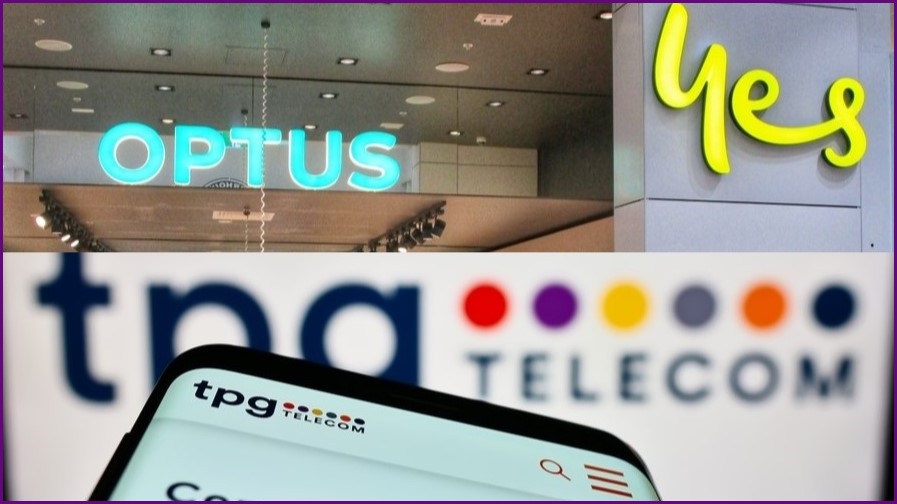Regional mobile coverage is set to get a huge boost after the ACCC greenlit a major infrastructure sharing deal between Optus and TPG Telecom that will deliver “structural change” to an industry that has long struggled to give regional Australians adequate mobile services.
The regional Multi-Operator Core Network (MOCN) agreement – which was first announced by the two telecommunications companies in April – will see TPG paying Optus $1.18 billion for access to 2,444 mobile network sites across regional Australia in a move that will more than double TPG’s 4G coverage, from around 400,000 square kilometres to around 1 million square kilometres.
Under the terms of the 11-year deal, Optus will also license some of TPG’s radiofrequency spectrum – in the 5G-friendly 700MHz, 1800MHz, 3600MHz and 3700 MHz bands – for use in its MOCN, fast-tracking its rollout of 5G mobile network sites to 1,500 by 2028 and 2,444 by the end of 2030.
“This arrangement will allow Optus to press the fast forward button on 5G infrastructure rollout to more regional communities,” Optus interim CEO Michael Venter said as the deal was announced.
TPG will transfer a number of its existing mobile sites to Optus, decommissioning 755 network sites to reduce redundancy as the deal expands the marketing reach of TPG brands including Vodafone, TPG, iiNet, Internode, and Felix.
The companies will continue to operate their own core networks, and will maintain separate, competing 4G and 5G networks in the metropolitan areas where 81.6 percent of Australians live.
The ACCC initially flagged the deal because it represents “a structural change to the mobile services landscape,” commissioner Dr Philip Williams said as the agency announced that its review had found that the agreements was unlikely to substantially lessen competition in the telecommunications sector.
“The agreements will allow TPG to provide better coverage in regional areas,” he said, “which will likely enhance its ability to compete during the term of the agreements, improving choice for regional customers.”
“The agreements are also likely to support Optus’ regional 5G rollout, particularly through access to TPG’s spectrum.”
The infrastructure-sharing arrangement will allow both companies to focus on expanding the footprint of their mobile networks, focusing on filling network blackspots without having to build thousands of duplicate mobile towers covering the same areas.
It’s a strategy that Telstra tried, unsuccessfully, with a similar $1.8 billion proposal that was rejected by the ACCC in late 2022 – and affirmed by the Australian Competition Tribunal in June 2023 – after the agency concluded that allowing Australia’s biggest mobile operator to increase its hold over regional mobile networks would leave regional residents “worse off”.
TPG, however, “currently has significantly less infrastructure and coverage in regional areas compared to Telstra,” Williams said, noting that the deal with Optus would likely enable improvements in TPG’s services “greater than what TPG could have achieved on its own”.
Breaking Telstra’s stranglehold on the bush?
The deal means that “for the first time the TPG Telecom network will cover most towns in Australia,” TPG Telecom chief executive Inaki Berroeta said, noting that the improved coverage “will allow us to win and retain customers in the cities who need reliable mobile service when they travel to the bush.”
Customers in previously underserved regional areas – including Cloncurry and Thursday Island, Queensland; Lachlan in Tasmania and Wattle Flat, NSW – will get access to 4G services and later, 5G as additional 4G coverage is rolled out early in 2025.
Other areas – including Cobar and Lightning Ridge, NSW; Coober Pedy and Tumby Bay, SA; and Coral Bay and Cape Range National Park, WA – will be migrated from 3G to 4G, enabling them to avoid having emergency calls and normal services cut off completely when Telstra and Optus switch off their 3G mobile networks, after repeated extensions, on 28 October.
“This is a huge win for customers and regional Australia,” Kieren Cooney, consumer group executive with TPG-owned Vodafone, said as the ACCC’s consent enabled the company to rev up the “game-changer” network expansion that, he said, “will break the mobile duopoly that has limited customer choice in regional Australia for too long”
Poor regional mobile services have perpetuated a service gap that has kept regional mobile communications in a relative stone age for many years, with some residents reportedly getting such bad 4G coverage that they have had to revert to landlines to make emergency calls.
Despite years of targeted subsidies designed to fix regional mobile ‘blackspots’, a recent Telecommunications Industry Ombudsman (TIO) report found regional Australians lodging 47 complaints about telecommunications services, on average, per day.
Amidst concerns that insufficient regional mobile infrastructure could pose a health risk during bushfires and other emergencies, the government recently announced a methodical nationwide audit of mobile coverage that will test real-world reception across the country.










